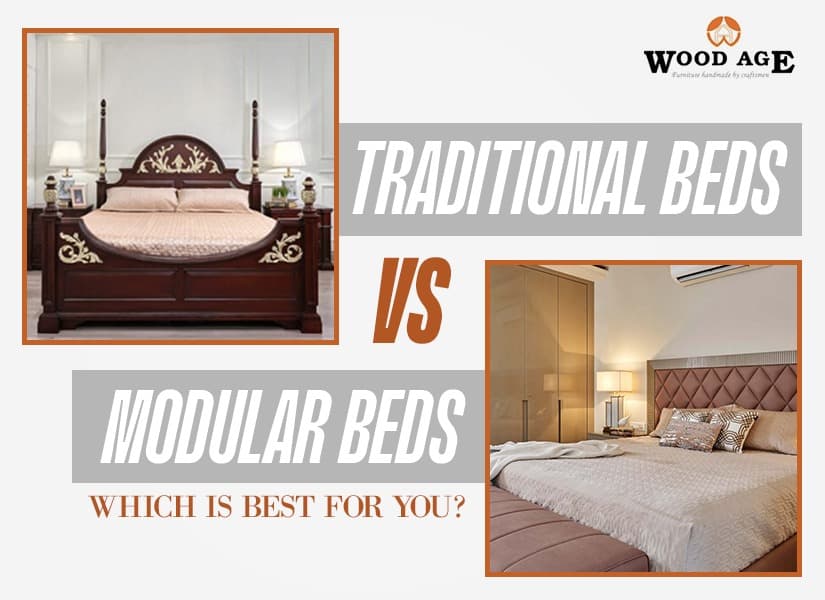Modular Beds vs. Traditional Beds: Which is best for you?
When it comes to a good night’s sleep, the bed you choose plays a pivotal role. The ongoing debate between modular beds and traditional beds has left many in a dilemma. Let’s navigate through the pros and cons of each to help you decide which is the perfect fit for your sanctuary.
Design and Customization:
Modular beds boast versatility with customizable options. From adjustable headboards to storage modules, they cater to individual preferences. On the other hand, traditional beds offer classic designs but limited customization.
Space Efficiency:
For smaller spaces, modular beds shine with their compact and space-saving solutions. Traditional beds, with larger frames, may pose challenges in limited spaces. Consider your room size when making a decision.
Cost Comparison:
While modular beds may have a higher initial cost, their long-term value often justifies the investment. Traditional beds may seem budget-friendly at first, but unforeseen expenses can accrue over time.
Assembly and Disassembly:
Modular beds win in terms of ease of assembly and disassembly. Moving or rearranging becomes hassle-free. Traditional beds, being bulkier, can be challenging to move.
Durability and Materials:
Modular beds come in diverse materials, each with its own durability factors. Traditional beds commonly use materials like wood or metal. Consider longevity based on material quality.
Comfort and Ergonomics:
Modular beds prioritize ergonomic design for personalized comfort. Traditional beds offer standard comfort features but may lack customization.
Style and Aesthetics:
Modular beds cater to contemporary styles, while traditional beds maintain timeless appeal. Consider your long-term aesthetic preferences.
Maintenance and Cleaning:
Modular beds often have easy-to-clean designs. Regular maintenance tips can keep your bed in top-notch condition. Traditional beds may present challenges in maintaining cleanliness.
Popularity and Trends:
The market trend leans towards the rising popularity of modular beds, driven by adaptability and modern appeal. Traditional beds continue to maintain their enduring popularity.
Customer Reviews:
Consider customer reviews for both types. Honest feedback provides valuable insights into comfort, durability, and overall satisfaction.
Environmental Impact:
Modular beds often cater to eco-conscious consumers with eco-friendly materials and practices. Traditional beds may raise concerns about sustainability based on the materials used.
Decision-Making Factors:
Consider factors like design preferences, space limitations, budget constraints, and environmental concerns when choosing between modular and traditional beds. Your decision should align with your lifestyle and priorities.
Real-Life Experiences:
To assist you further, here are some real-life experiences from individuals who have chosen either modular or traditional beds:
Conclusion:
In the grand debate of modular beds vs. traditional beds, there’s no one-size-fits-all answer. Your choice ultimately boils down to your personal preferences, lifestyle, and specific needs. Consider the outlined factors, weigh the pros and cons, and make a decision that ensures a good night’s sleep tailored to your requirements.
FAQs:
Are modular beds more expensive than traditional beds?
The initial cost may be higher, but the long-term value often justifies the investment.
Can traditional beds be customized to suit individual preferences?
While customization options are more limited, some traditional beds offer certain adjustable features.
Do modular beds require special maintenance?
Regular cleaning and maintenance tips are simple and easy to follow for modular beds.
Are traditional beds outdated in terms of design and style?
Traditional beds maintain a timeless appeal and can complement various interior design styles.
Which type of bed is more environmentally friendly?
Modular beds often offer eco-friendly options, but traditional beds’ environmental impact varies based on materials.



